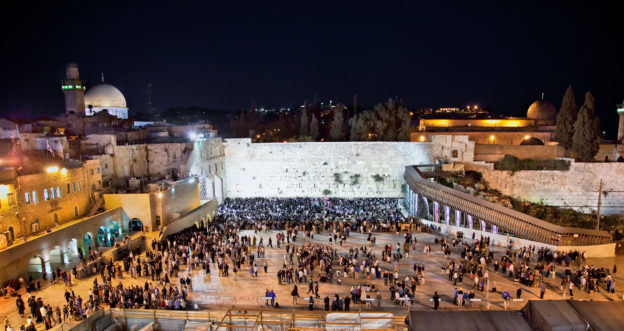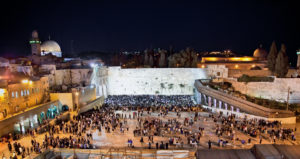For something truly extraordinary to happen, we must include the people already inside the tent.
In Vayeira I see an important message about inclusivity, but it’s not what you think. Everyone looks at Abraham’s hospitality, running to the three men and offering rest, food and drink, and honor. But it is only when Sara comes from the tent that the great miracle of prophecy occurs. This is a most important message for us in these changing times.
We properly reach out to people outside our tent in an effort to practice inclusivity and outreach. But as we reach out we must also reach within to make sure that those already within the tent feel equally honored and valued.
People regularly leave the synagogue community because they no longer find anything there for them. Parents leave once the child has been “Bar-Mitzvahed” and Boomers leave because they do not see value in belonging. But helping to develop a child’s value system and sense of community has only just begun with Bar-Mitzvah, and finding support in a caring community is never more important than when we confront the challenges of middle age and beyond. Our synagogues are as important as ever, but destined to struggle with membership (and finances) if we do not find ways to communicate a value proposition that resonates for those already in the tent. Those front doors we want to fling open to welcome newcomers are also open to those looking to leave. We need to help them understand why they would want to stay.
Sara prepared the cakes to serve the messengers and standing at the tent’s opening, she scoffed with incredulity at the vision the men proclaimed. Our congregants too find the future difficult to accept, but it is our sacred task to give them a vision of an extended family and the caring community they are unable to imagine for themselves. As we seek to evolve and broaden our reach, we must always remember to continuously nurture those who have already aligned with us so they continue to embrace our important values and keep our tent full.



Many of those who “leave the tent” are, like me, those who live alone and without family. Synagogue can be one of the loneliest places in the world for us. Attending services, watching as husband and wives, partners and children, sit together, tenderness and warmth emanating from their seats, is heartbreaking. Oneg Shabbat is worse. Joining a table of well established family and friends, even the most outgoing single feels the pain of the “loner”. And groups for singles are generally geared to social activities. Many of us have those. What we yearn for is feeling part of “community”. The pleasure of sharing spiritual time. Talking about the sermon. What it all means. On the face of it, it does not seem terribly difficult to welcome the loner and make them part of the congregation. Perhaps they are not aware. Or want uninterrupted time with family. Whatever the reason, the person without family, the single newcomer, is left feeling abandoned and more alone than ever.
It is similar in the Orthodox world.Although ,well meaning invitations are ” a plenty,” it is still not going him with your spouse and to your waiting children.in shul , it is so painful when all the children are called in and put under their father’s talit for Birkat Kohanim. After davening there is ,thank G d bli ayin hara ,a traffic jam of baby carriage .Those are no longer your contemporaries ,but, rather the grandchildren.